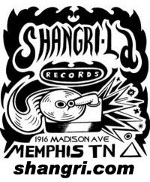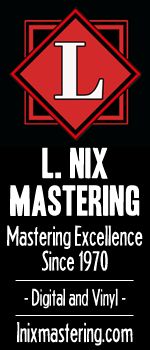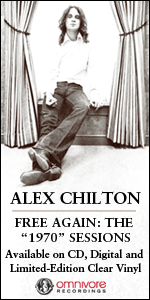When I moved back to Memphis last September, the first person I met in the Memphis music community was Cameron Mann. This wasn’t an accident – Cameron has probably met 90% of the city. Just sitting with him for an hour, he greeted everyone coming into Bluff City Coffee as friends. It was as if he worked there, and was saying hello to the regulars.
So, lots of people know Cameron. But even more know him without knowing it: he co-created the “aristocrunk” rap duo Lord T and Eloise. That guy below in the white Oxford and grey sweater vest? That used to be Lord T! He’s played Bonnaroo and SXSW. He’s toured with 8Ball & MJG. But wait–there’s more!
Cameron has worked for WorldCom in London, traveling Western Europe and learning telecommunications. He co-founded a record label/production company (Memphis Records) and recording studio (Young Avenue Sound) before he could legally rent a car. And now he’s the Director of Programming at the Memphis Music Foundation, where he uses his insane spectrum of expertise to help local artists advance their career.
Last week, Cameron and I sat down to talk about his history on both sides of the music business. Enjoy Another Cup of Coffee with Cameron Mann!
(Note: To read all the past Another Cup of Coffees, just click here.)
Are you not getting anything? No coffee?
I think this is my third or fourth time in here today–I’d better stop.
I’ll have yours. I saw the CNN story on the Memphis Music Foundation today. How’d that happen?
I asked my boss, and he said CNN’s focusing on a handful of cities. I think they did some internet research and found us and said, “the two things we’ll focus on in Memphis is what the Music Resource Center is doing, and the revitalization of Beale Street.”
Let’s get a little bio info and connect some dots, because you’ve got such a cool story. You’re from Memphis, right?
Correct. I went to [all-boys private school] MUS and graduated in 1996. Don’t hold that against me.
Never! Half my soccer team back in the day were MUS kids. Good guys. Where’d you go to college?
I did undergrad at Tulane. I was choosing between Tulane and Wash U in St. Louis, and I fell in love with New Orleans and the culture there, especially the music. You could say my passion for music started when I went to Tulane. I went to shows four or five nights a week. I’d put up posters for local promoters there called Superfly. That was maybe my first window into the music business.
Were you studying music or business?
I was an American Studies major. It ended up being a lot of English and history, and I minored in philosophy. I wrote a lot of papers.
Cindy [last month’s Another Cup] said she studied Poly-sci and Russian in college. Lots of unconventional majors.
I think the music business inevitably attracts a motley crowd. I don’t know that there is a “standard path” in the music industry. I bet Cindy’s path was just as random and weird as mine.
For sure. I was kind of a misplaced Belmont kid at Vandy.
Did you take any classes at Belmont?
Nope. I was taking classes at Blair [Vanderbilt’s music school], trying to hang with the jazz kids and the classical kids. And then everyone I ended up playing with in Nashville were Belmont kids. They’ve got a great program.
Definitely, and I know they’ve got a music MBA too.
So how do you go from college kid street-teamer to aristocrunk rap superstar?
My first job out of college was in London. I worked for a year as a low-low-low man on the totem pole at WorldCom. I wasn’t in love with telecommunications, and I was kind of homesick, so I chose to move back to Memphis. That coincided with my dad working on a business plan for what would become a recording studio and a record label [Memphis Records & Young Avenue Sound]. He’d always wanted to do something sort of outside the box, and he was always passionate about Memphis music. So he worked on contracts that were more artist-friendly: one record deals, contracts that were more of a partnership than an ownership. It was more cooperative.
At what point did you become an artist yourself? How did Lord T and Eloise happen?
I saw right away I had a choice at Young Avenue Sound between two tracks: being an engineer/producer, or being more administrative. I just wasn’t passionate enough about engineering, so I became more interested in the music business side of things. I became the studio manager.
The label quickly morphed into a production company. So, when it came to getting distribution, I helped us get our distribution deal. We tried to get into booking for a minute. We tried our hands at a number of different things.
So now you’re getting a ton of experience helping artists with their business–stuff that would really help later.
Exactly. Then, the real origin of Lord T & Eloise: when I was living in London, my friend Robert and I created these email alter-egos. Really privileged, obnoxious, private school kids who would rap battle each other over email. Way later, Robert and I were hanging in the studio, drinking whisky, and were going through those emails and laughing about them. Our friend Elliot said, “this is pretty funny stuff. It would be cool if you could create real characters and write real songs based around this.”
So we decided to try it. My character’s name was Lord Treadwell. My grandmother’s name was Treadwell, and it always sounded snooty to me. Robert’s character was Maurice Eloise the 13th. We were fraternal twin brothers. We created a crazy mythology behind the characters and started writing songs.
When you think about it, in every genre of music–especially hip hop–an artist adapts some kind of persona. They embellish something about themselves for whatever effect. In the case of 50 Cent, he’s been shot nine, fifteen, twenty times, however many. In our case, instead of coming from the streets, what if we’re the total opposite? It was a satirical project from the beginning, but it was always coming from a place of real love and respect for hip hop.
Y’all became pretty popular pretty fast. How did that happen?
We were very green at the beginning, learning from trial and error for about a year and a half. How to write a song, how to use your voice, how to be a performer…
It’s funny to hear you talk about that process explicitly. It’s something every artist goes through, but almost nobody talks about: the very beginning, when you’re learning on the fly and not very good. It’s almost taboo. We’ve all experienced it, but nobody says, “for the first year or two, I didn’t know what I was doing.”
I could play you our earliest stuff. It was awful. You have to see the whole progression. We were lucky to have Elliot, a music student from Rhodes, who really taught us everything. He put us through boot camp. Robert took to it easier than I did–he was a more natural artist. I was more of a performer.
We put out a music video that became a local, viral hit, and suddenly there was a demand for us to play a show. We’d never performed before, and I had stage fright. The first show we did sold out. We did another show where we headlined and that show sold out. We thought, “I guess we’re onto something–we need to pursue this.” We rushed to put out a record, pressed it up real quick. We toured with another band that was in the studio making an album, and on that tour we met the guy who would become our booking agent. Once we had an agent, boom, the floodgates opened. Within a few years, we were playing Bonnaroo, CMJ, Musicfest, all kinds of stuff. It happened quickly.
But being on the road with Lord T and Eloise was a great learning experience – I learned a lot about touring, about how it usually takes three times in a city before that market becomes profitable. I learned what it was like from the artist’s side, trying to build something from the ground up. We were our own managers, our own label.
You clearly have a talent for marketing, especially internet marketing. Is that when you started realizing that?
The timing of our band was right when Myspace was on the rise. Having a Myspace page that I doted on daily really helped. You could say I was an internet geek in the early days of social media. We interacted with fans in a really personalized way, used it to network with other artists, find articles about us and post in the comments section, etc.
Now, it’s hard to keep track of all the tools out there. There’s Facebook, Twitter, Bandcamp, Reverbnation, Topspin…there’s so many tools out there for artists. It’s almost dizzying.
That’s something we try to do at the MMF’s Music Resource Center is cut through the clutter. We try to give some personalized consultation for what might work best for each artist at that point in their career.
And y’all do a great job of that. So, how did you go from Lord T and Eloise to working full-time with the Memphis Music Foundation?
You can learn a lot about the music business from a book, but I really believe the best education is going on tour with a band. You see so much at the ground level. But I learned that, for me personally, not being a musician, I wasn’t going to do this forever.
I saw the job description for Director of Programming at the Memphis Music Foundation and thought, “that’s me, this is perfect.” Then, I saw the plan for the Music Resource Center and knew, wow, this is a really purposeful vision for a place that’s so needed in Memphis. To offer people resources, events, programs, with the purpose of helping artists, and trying to rebuild the local music industry.
It just spoke to me at the time when I was looking to get off the road anyway. I knew I couldn’t do both, they’re both full-time jobs. So, I left the band in March 2009, and it was kind of bittersweet. It was a really fun time with those guys.
The Music Resource Center specifically is something that every city needs–especially cities that aren’t NYC, LA, and Nashville. And yet so few cities have one. It’s a nerve center that cuts through the clutter and gives clarity to the artists–here’s where I can go, check in, they know me, they know my music, they know my goals, and they want to help. It’s amazing that every city doesn’t have one of these.
There’s a group from Atlanta that was in town for an event recently, and they said the same thing: “we should have something like this in Atlanta!” In Memphis, necessity was the mother of invention. There were plenty of talented artists that didn’t have a local outlet to launch that talent. The Music Resource Center attempts to fill that gap. It’s a self-service place where artists can get real help.
What makes the Memphis music community unique?
Accessibility. I think the great thing about the Memphis scene is that most of the people you’d want to meet are very accessible. You just have to get out there and find them, meet them, introduce yourself. For example, take the Grammy’s local chapter, the Recording Academy here in Memphis. Nearly everyone involved in Memphis music is a member. In 2001, when I was just starting out, I’d go to every Recording Academy event – and they have a lot of events – and in a matter of months, I’d met everyone in the local music business.
Get involved with anyone and everyone. The Folk Alliance, Recording Academy, Music Commission, of course the Memphis Music Foundation, everyone. They’re all easy to find and they want to meet you.
Accessibility is a great point. When I lived in NYC and Nashville, it was just different. Industry people there are great, and can help you, but they’re spread so thin. Even if they like you, and believe in you, and want to help, they’ve got so many demands on them. It can be hard to connect.
It’s similar on the fan side, too, I think. I played a songwriter’s round last July at Neil’s. There were probably 60 people in the crowd. I think by September I’d met all 60 of those people. Memphis fans seem a little harder to win over, but if they like you, they’re very accessible, vocal, and active. They’ll say hello at Kroger the next week. From the artist’s side, that’s really fun and rewarding.
There’s a theory among booking agents and promoters that, if an artist is successful pulling a crowd in Memphis, they can be successful anywhere. It’s a tough market.
The local bands that really have success here are ones that are able to cast a wide net. Lucero’s a perfect example. For a while there, they were playing to the midtown crowd, a punk and alt-country crowd. But their music was accessible to a wider audience. They toured in different cities and got popular in the frat scene. Now, you go to a Lucero show and it’s a weird mixture of tattooed hipsters, frat guys, everyone. To me, that says success.
What’s the best local show you’ve seen recently?
That is really tough. There are different categories: most memorable, really impressive musicianship, etc. Let me not dance around your question. Let me say this: I love seeing amazing musicians like Kirk Smithhart and Eric Gales at the absolute top of their craft. So there’s that. But there’s also the shows that create an environment, or performers who value showmanship. For a while, local shows lacked that element…
It was uncool to look like you cared?
Yeah, yeah. I’ve always appreciated showmanship, and artists who try to create a full experience. One who does an amazing job of that is Harlan T. Bobo. His show with the Memphis Symphony is one of the coolest local shows I’ve been to in a long time.
Another one was the Prosevere CD release party with Sore Eyes and Inner 61 a few weeks back. That show really got me back into rock. All three bands put on an awesome show. Crowd interaction, lighting, sound, giving the crowd 200 shots of Jack…that show was really awesome.
Also, just being able to see a band like The City Champs in a place like the Buccaneer is such a treat. Such amazing musicians in such an intimate, laid-back environment.
And then there are new hip hop artists like Skewby and Cities Aviv. A lot of people complain about Memphis rap sounding regressive, but everything those guys are doing is so cutting edge. They’re examples that Memphis is still pioneering and creating new sounds that will be very influential.
I need to hear more of them. Someone’s making a Memphis music mix. You get to add one song to the playlist. What’s your pick?
I’d probably pick Jay Reatard “My Shadow.” He was amazing; it’s a shame we lost him when we did.
[The Another Cup playlist so far:
1) “Loose Diamond,” Jack-O & the Tennesssee Tearjerkers (Jeremy Stanfill’s pick)
2) “Happy” by Snowglobe (Cindy Cogbill’s pick)
3) “My Shadow,” by Jay Reatard (Cameron Mann’s pick)]
What’s your favorite bar in Memphis? Most-frequented?
Oh, those are two different answers. I guess Mollie Fontaine is probably my favorite. Most-frequented is probably Beauty Shop.
You’ve got one meal left in Memphis–where are you going? Besides Mom’s house?
(Long silence while he’s thinking…)
These are totally unfair questions; I can’t answer them at all.
I know! Wow. Probably Casablanca. Debating between that and Jerusalem Cafe. I love Middle Eastern food. My mom grew up in Egypt, so I grew up with Middle Eastern food. It’s kind of comfort food for me.
How do you take your coffee?
I usually get a latte.
Memphis is…?
A free spirit.
Where would you like to see Memphis’s music community be in 5-10 years?
I think Memphis could be positioned as the “independent music capital” of America. In Memphis, we pioneer new business models and new genres of music–always have. I see us as having more independent music companies in Memphis that cater to niche audiences around the world. I see these companies being small, nimble, and able to reach fans and consumers directly.
Cameron, thanks very much!
Thanks Chris.











